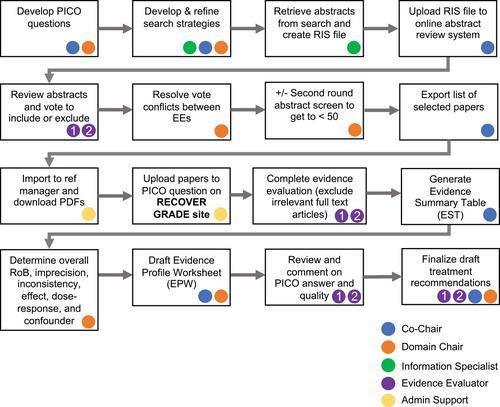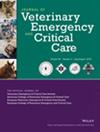2024 RECOVER Guidelines: Methods, evidence identification, evaluation, and consensus process for development of treatment recommendations
Abstract
Objective
To describe the methodology used by the Reassessment Campaign on Veterinary Resuscitation (RECOVER) to re-evaluate the scientific evidence relevant to CPR in small and large animals, to newborn resuscitation, and to first aid and to formulate the respective consensus-based clinical guidelines.
Design
This report describes the evidence-to-guidelines process employed by RECOVER that is based on the Grading of Recommendations Assessment, Development, and Evaluation (GRADE) approach and includes Information Specialist-driven systematic literature search, evidence evaluation conducted by more than 200 veterinary professionals, and provision of clinical guidelines in the domains of Preparedness and Prevention, Basic Life Support, Advanced Life Support, Post-cardiac Arrest Care, Newborn Resuscitation, First Aid, and Large Animal CPR.
Setting
Transdisciplinary, international collaboration in academia, referral practice, and general practice.
Results
For this update to the RECOVER 2012 CPR guidelines, we answered 135 Population, Intervention, Comparator, and Outcome (PICO) questions with the help of a team of Domain Chairs, Information Specialists, and more than 200 Evidence Evaluators. Most primary contributors were veterinary specialists or veterinary technician specialists. The RECOVER 2024 Guidelines represent the first veterinary application of the GRADE approach to clinical guideline development. We employed an iterative process that follows a predefined sequence of steps designed to reduce bias of Evidence Evaluators and to increase the repeatability of the quality of evidence assessments and ultimately the treatment recommendations. The process also allowed numerous important knowledge gaps to emerge that form the foundation for prioritizing research efforts in veterinary resuscitation science.
Conclusions
Large collaborative, volunteer-based development of evidence- and consensus-based clinical guidelines is challenging and complex but feasible. The experience gained will help refine the process for future veterinary guidelines initiatives.


 求助内容:
求助内容: 应助结果提醒方式:
应助结果提醒方式:


